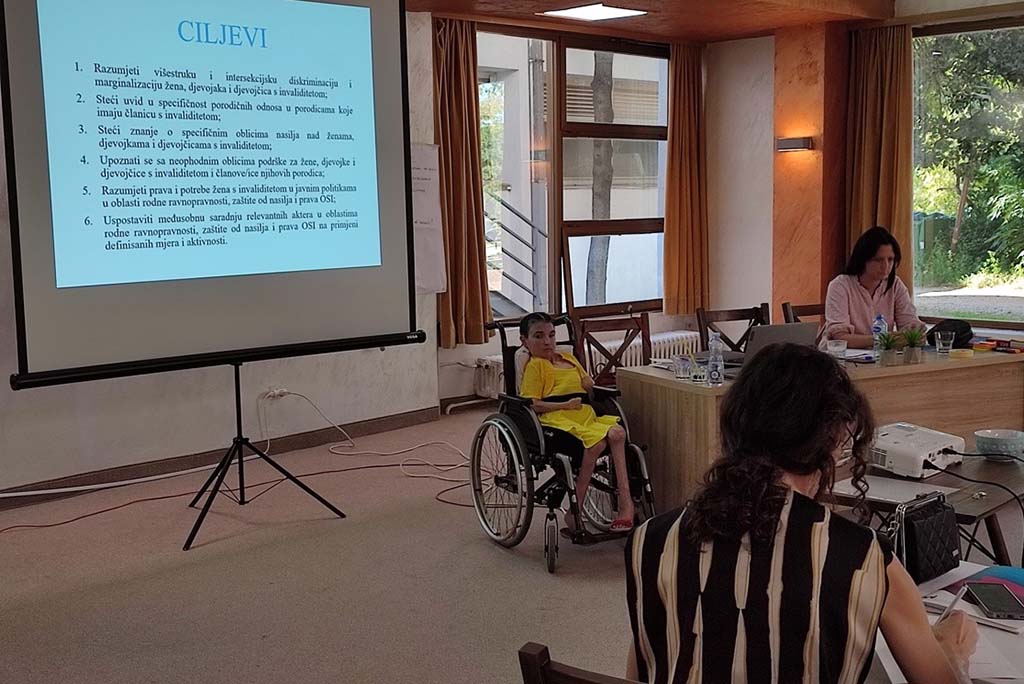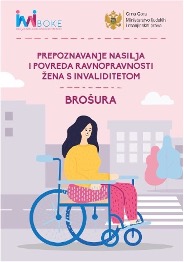Making a difference through projects for change
Earlier this year, the fifth group of Kvinna till Kvinna’s international training programme in collaboration with the Swedish police graduated. We interviewed some of the participants about their “projects for change”.

Together with the Swedish Police Authority, The Kvinna till Kvinna Foundation runs an advanced international training programme (ITP) on gender-based violence. Participants from Albania, Kosovo, Montenegro, Moldova and Ukraine (both from public authorities and civil society organisations) work on strengthening their capacity to prevent and respond to violence.
As an ITP participant, you are, over the course of eight months, offered advanced training by experts, practitioners and academics to help you successfully implement a project for change.
Supporting women and girls with disabilities in Montenegro

The Brochure on Recognition of Violence and Violations of Equality of Women with Disabilities.
One of the participants, Miroslava-Mima Ivanović from the organisation The Initiative of Youth with Disabilities of Boka (IYDB), focused her project for change on the high levels of gender-based violence and multiple and intersectional discrimination against women and girls with disabilities in Montenegro—a group which remains among the most marginalised.
“There is almost no public debate on the position of women and girls with disabilities, not even at events dedicated to women’s rights, and there is no data on the issue,” says Miroslava-Mima.
The project, among others, aimed to raise the awareness and knowledge about the issue amongst stakeholders in the field of gender equality. One of the concrete outcomes was the publication of the Brochure on Recognition of Violence and Violations of Equality of Women with Disabilities in various accessible formats and minority languages: Montenegrin, Albaninan and Romani in electronic, printed and audio formats and Braille format in Montenegrin.
Research on online violence
Having participated in the ITP and gone through with her project of change has made a difference, according to Zvezdana Radulovic from Montenegro.
She focused her project on online violence against women.
“My change project helped me learn more about the problem of online violence against girls and women in Montenegro. I managed to come up with useful new information in my mini-research that helped me deepen my knowledge,” says Zvezdana.
She presented her findings to former colleagues at the organisation Women’s Safe House and to network Violence Against Women Europe (WAVE) where Zvezdana has been a youth ambassadour. WAVE is a feminist network promoting women’s and children’s human rights.
“Without the ITP, I probably wouldn’t have done this much, like a full project. Thanks to that, I now see that I really can make a change,” says Zvezdana.
Fostering communication within the network
Aside from developing impactful projects of change, one valuable outcome of the training is the communication and connections forged between participants.
“What is truly incredible and what I am very proud of is the communication with everyone who is part of the ITP network,” says Zvezdana.
After completing the training, she and others from her cohort stayed in touch and continued to discuss their change projects on a monthly basis, sharing new ideas to potentially implement.
“This is a great thing because we have come together from different sectors. With this, we are creating a safer environment for women victims of violence in the future,“ says Zvezdana.